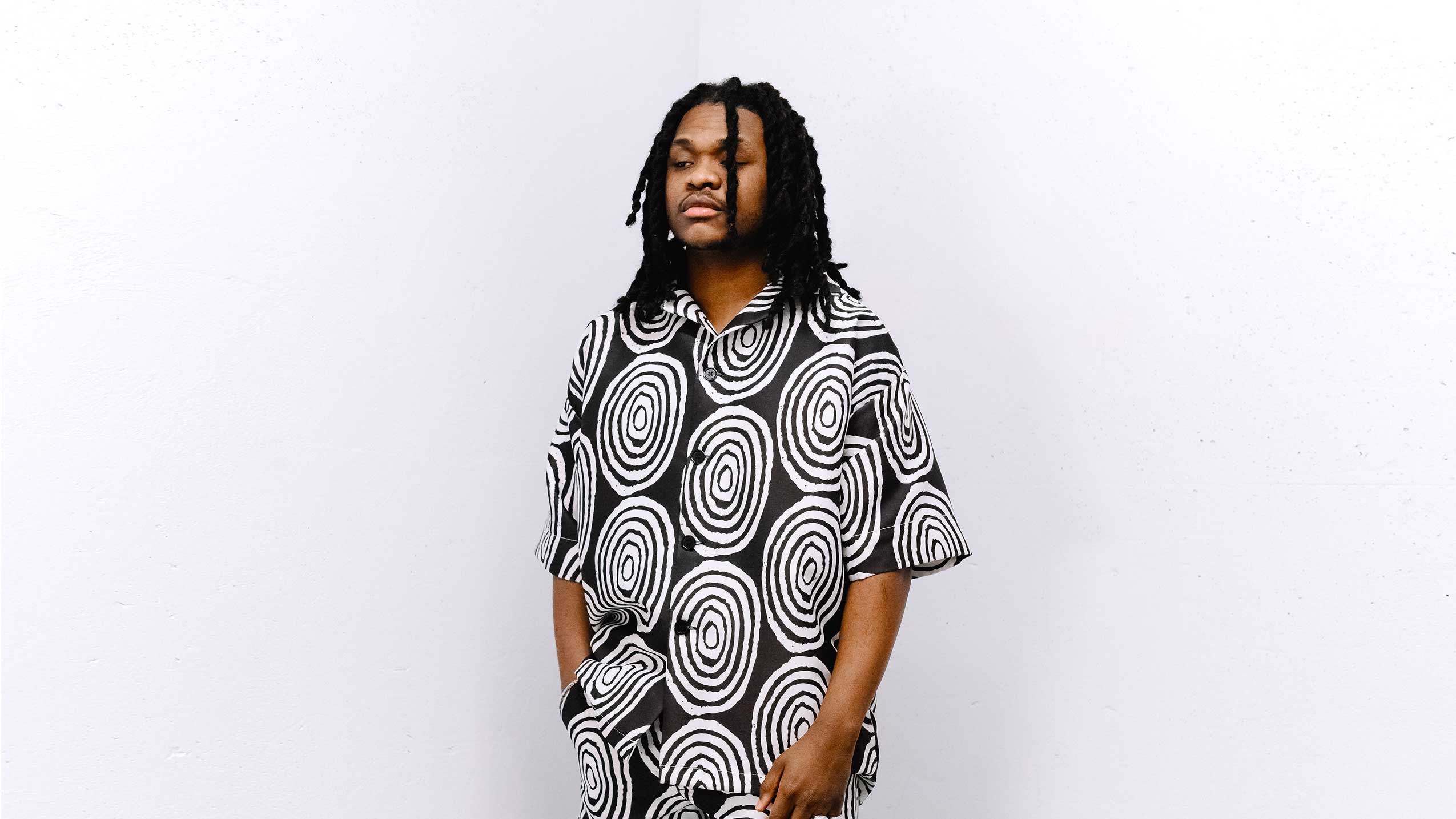
What will Detty December look like in this great T-Pain year? On Thursday, December 6, 2024, the 5th edition of the concert Fuji: A Opera, themed “Fuji Vibrations 2024” offered an answer.
Since its launch in 2020, the free Fuji music festival has remained dedicated to celebrating and bringing Fuji musicians closer to aficionados of the genre, music lovers, and fun seekers across generations, genders, and geography. What started as a one-off past-time shindig during the pandemic has metamorphosed into a running show that’s now in its fifth edition.
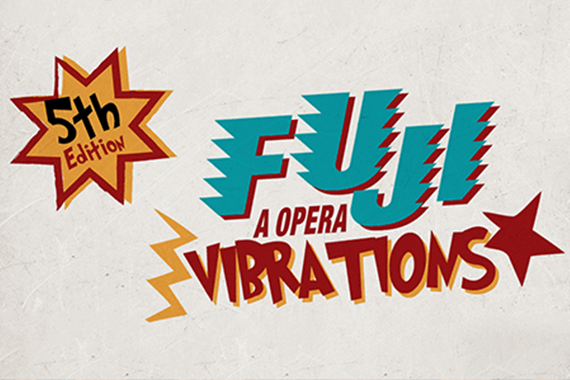
This year, Fuji: A Opera’s ambitions expanded. Together with the Fuji Music Association of Nigeria (FUMAN), it flourished with sponsorship from brands like Imperial Black, Goldberg and UAC Foods Nigeria, partnerships with White Space Lagos, Schweppes Nigeria, the burgeoning women-wear champ Meji Meji, and UB Fabrics—which also clothed the VIPs in a sky-blue print covered with “FUJI.” The “and co” attire, adorned by only the most avid Fuji fans and the one percenters able to buy that card, was giving “family and friends of Fuji Opera.” Barbecue sellers set up shop, grilling meat by an open bar at the back. Cups of beer went ‘round, as did plates of Ofada, peppersoup (in the VIP section, though they ignored the media partners). Puffs from all kinds of smoke— cigars, cigarettes, Canadian loud enveloped the arena.
Fuji: A Opera served a seasoned line-up of artists. DJ Kulet took over the stage a dozen times with her mix of Fuji sounds. Iyalode Music warmed up the crowd with her “alujo” dance music, before Alhaji Sikiru Lemon boosted the energy with his high-morale Fuji. Fatimo Ajoke Cinderella, who went viral for her song Allahu Motide, was the performer who didn’t miss a beat. She suddenly burst on stage introducing herself and then playing on the event name with “Opera Mini” before moving into a vigorous dance, reviving deeply anti-women ideas that also showed up in the welcome address by SK Sensation, the president of FUMAN.
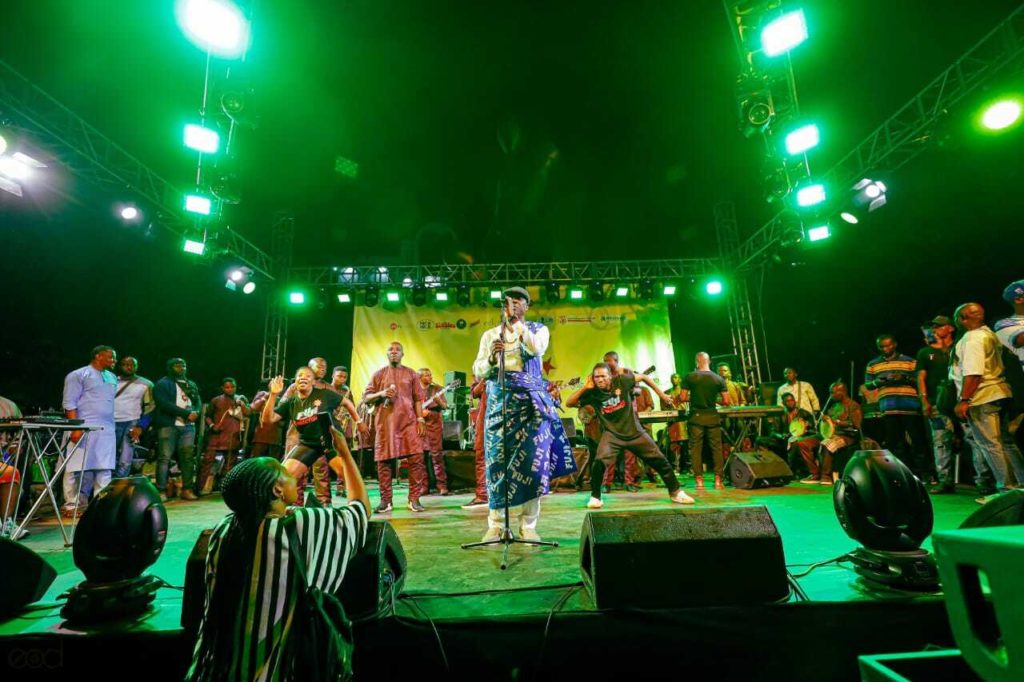
Rather than critique the systems that inhabit the women who have been for years victims of the sex trade, Ajoke Cinarella seized the opportunity to promote an old tired trope about the activities of women in sex work. “Pátá ashéwó ò kín n’ísin mi / Bó sé n bo, ló n wò, ló n bo, ló n wò,” she sang.
SK Sensation started his speech by saying, in Yorùbá, “Ekáálé o (meaning ’Good evening’) to the baba (fathers), the alejo (guests), the ololufe (fans).” He ignored all the women at an event whose anchor is women — women performing on stage, women serving drinks, women in the audience; seated, standing, dancing.
Singer Atawewe towed the same line, recognising only the men in the house even as he bragged that his detractors would never defeat him unless they weren’t “born out of a woman.”
Remi Aluko’s quirky, street-smart renditions of Afrobeats and gospel hits combined with aggressive, freestyle dance moves scored a warm moment with the audience. He did his Fuji version of Rema’s “OZEBA” and addressed the ongoing discord in the Fuji music world. He urged the elders to behave elderly and the youngins to show respect.
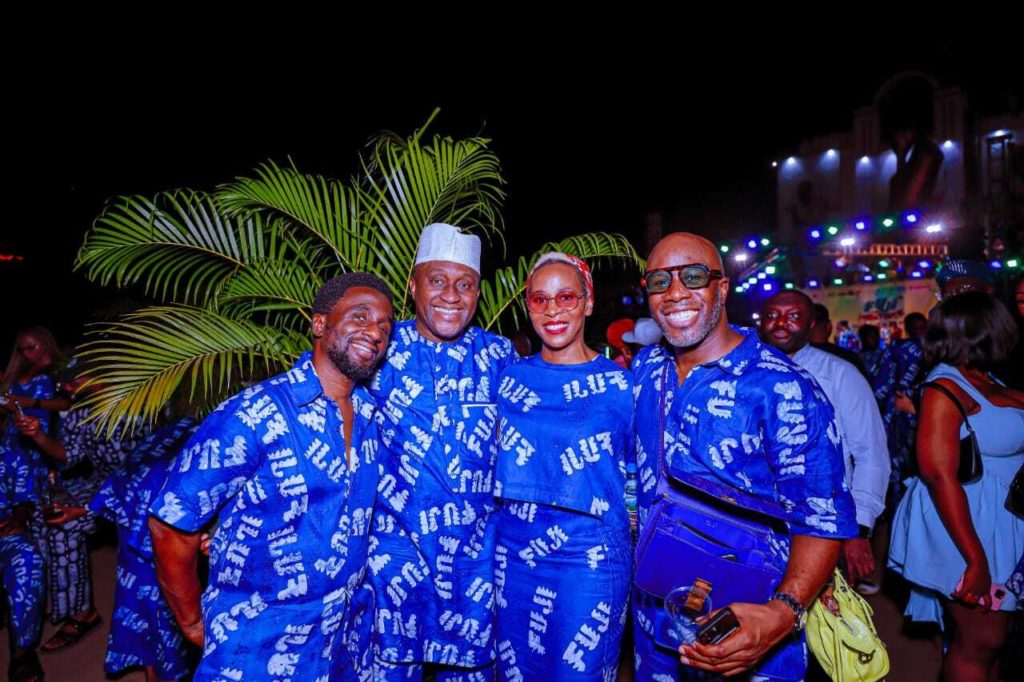
The music jerked fast, but Lokoso Ajani, SK Sensation, and Aare Shina “Scorpido” Akanni, who Malaika and some other younger Fuji artists went to pay their respect to on stage, brought mid-tempo and veteran grooves that kept the agile and older folks in regulated moves. But that wasn’t for long. 59-year-old Abass Oberese, adorned in a grey-and-black coloured durag, vintage shirt, black jeans and white sneakers, stepped into the luminaire. He performed his hits “Asakasa” and “Mr. Teacher,” while the female dancers threw their behinds to the drum beats and Obesere’s hand directions—a nostalgic moment for those who grew up listening to his music in the early 2000s. Like the patron of Fuji music that he is, Wasiu Ayinde, AKA K1 De Ultimate, performed popular hits like “Ade Ori Okin” to close out the event.
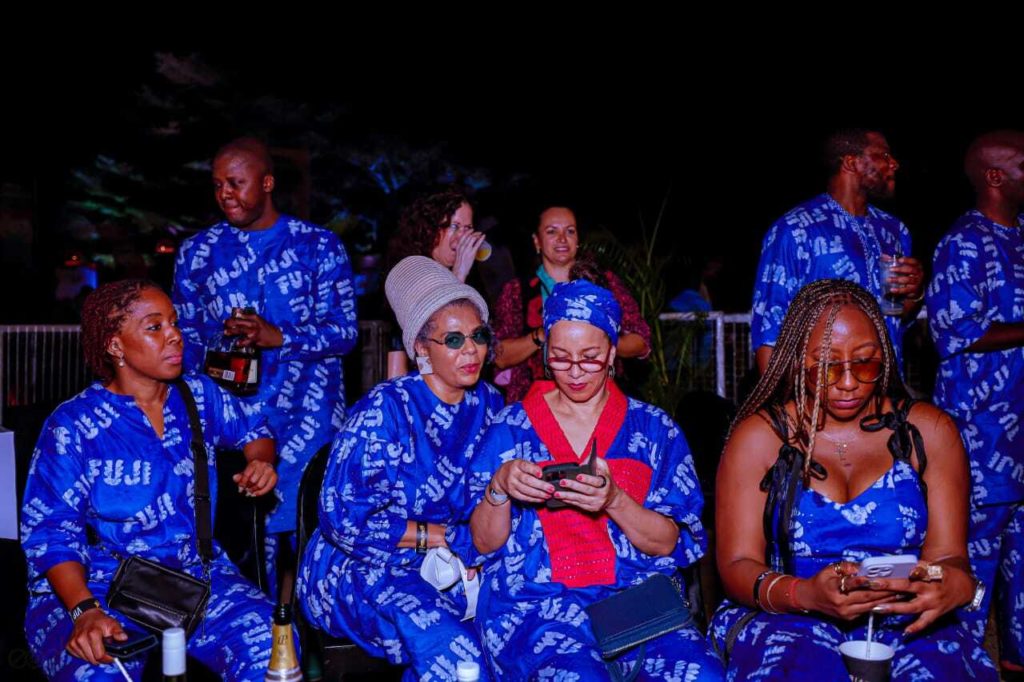
But the acts that grabbed the crowd most were Malaika and Saheed Osupa, two beloved Fuji veterans who took the stage at the tail end of a lineup, an ensemble that included other musicians across the Fuji scene. Though it was almost midnight and a new day was knocking at Muri Okunola Park in Victoria Island when Malaika opened his set, his eclectic performance—which turned into a celebratory sing-along in front of hundreds of fans—kept fans awake, agile, and gyrating. He made the crowd throw their white handkerchiefs in the air with his “Aro Eyo” chant performance, a nod to Lagos’ Eyo cultural heritage.

Saheed Osupa, on the other hand, started his set in the early hours of Friday and inflamed the stage with a rendition of his song, “Itanna Ogo”, off his “Fuji Icon” album. Then, he segued into an unreleased song in reverence to his home city, Ibadan, and to Dr. Sikiru Ayinde Barrister, the originator of Fuji music. Osupa reckoned that Barrister may be gone, but Fuji music is alive and thriving. In the same breath, Osupa emphasised Fuji as his first choice of music and honoured and deified Barrister. “Ósì wà l’existence, to bá ti n’ígbàgbó / Á gbé e wò lójijì tobá gbà fún Barry / Torípé ìmìsí Àyìndé Ògún òòkú o, musically lótún mín,” he sang, as he strutted the platform in a confident pace. Every second of a pause gave the audience the chance to rave in excitement and cheers.
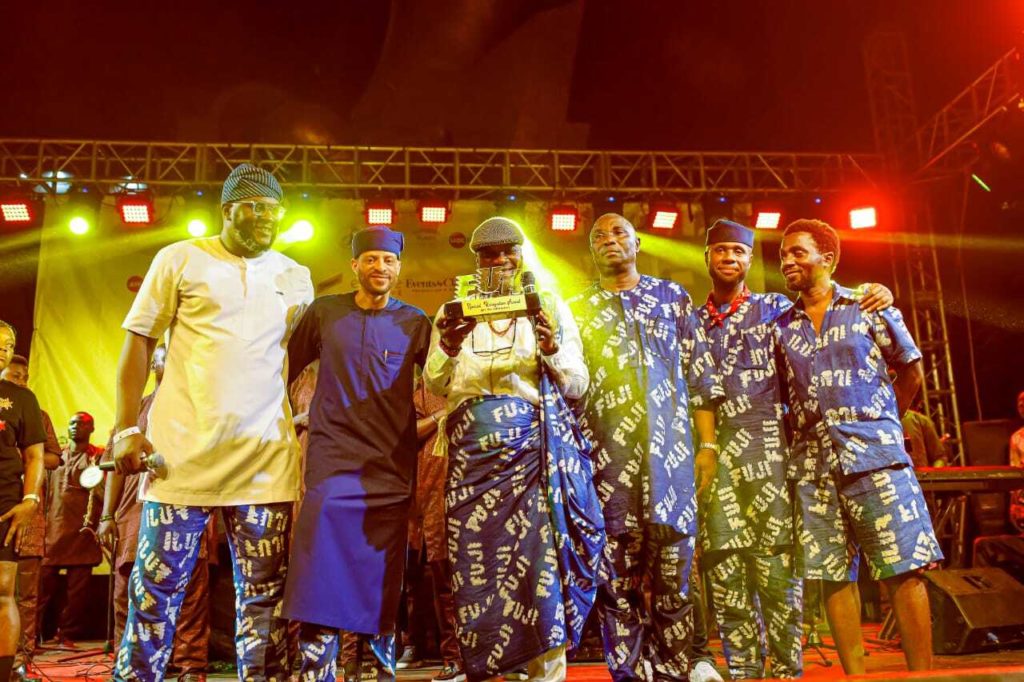
From start to finish, Fuji: A Opera prioritised the celebration of Fuji music, culture and artists, keeping alive the collective spirit it was designed to preserve. “We are doing this to get Fuji to make more statements in the world of music,” K1 De Ultimate said while presenting an award to the FUMAN president at the event. The vibe in the crowd was communal—old friends were reunited, and new friendships were made.



